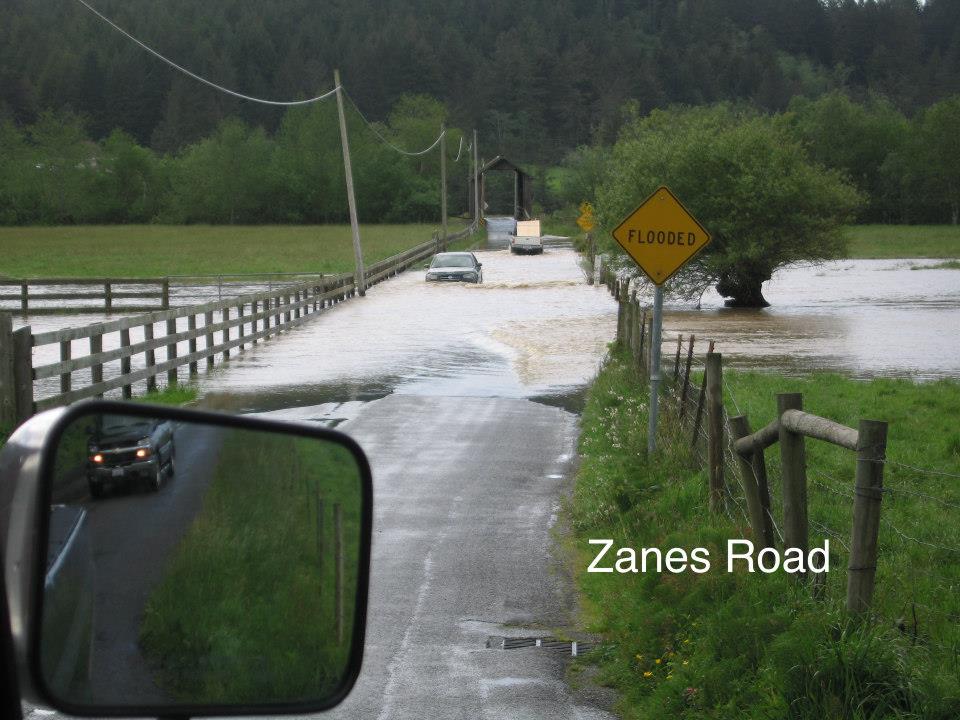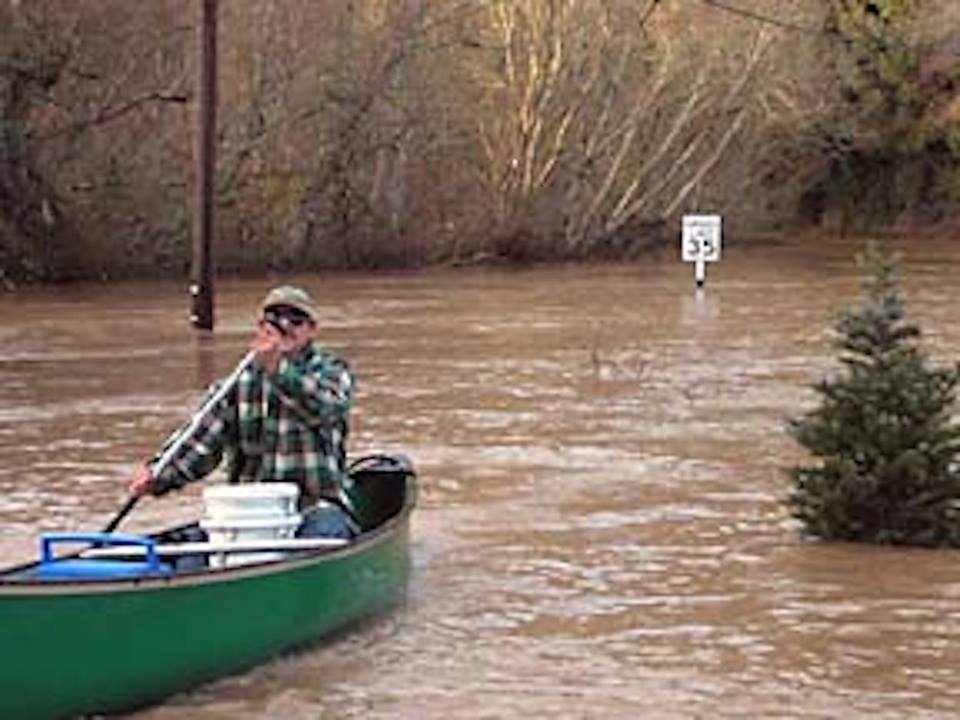
Images from Friends of the Elk River Facebook page.
UPDATE, 6:05 p.m.: Humboldt/Mendocino Redwood CEO Mike Jani just returned our call, and not surprisingly, he disagrees with calls for a moratorium on logging in the region.
“I’m not sure that putting any moratorium on the logging going on today would have any significant results in the sediment issues,” Jani said. “Our belief is that the sediment is coming from legacy operations in the system and working its way down.”
As to the Regional Water Quality Control Board’s draft report, Jani said he’s anxious to see if the board has made any changes based on the input he and others have provided since the draft was released last November. He added that he appreciates the time that was given by the board to submit feedback.
For tomorrow’s workshop, Jani said, “We’re going to listen and politely answer questions if they’re brought our way.”
###
Original post:
Heavy rain can spell big trouble for people living in the Upper Elk River watershed, south of Eureka. Decades of logging (particularly during the 1986-2007 Maxxam era) destabilized the region’s geology. Left exposed to the elements, the fine-grained soil has been eroding in recent decades, dumping sediment into the river faster than the river can flush it out. Over time this trend has expanded the river’s drainage network, damaged the cold-water fishery, infringed on public and private property and threatened the health and welfare of the local community. Nowadays, downpours regularly cause flooding that cuts residents off from the outside world, sometimes for days.
Tomorrow at 1 p.m., some of those residents will be at the River Lodge in Fortuna to address the North Coast Regional Water Quality Control Board, which is holding a workshop to address the situation. Though the Maxxam days are gone, timber operations in the region continue under both the Humboldt Redwood Company and Green Diamond Resource Company. The water board has developed a draft Total Maximum Daily Loads (TMDL), meaning a limit on the amount of sediment discharge allowed. Tomorrow it’s seeking input on that draft.
 Local nonprofit Friends of the Elk River wants timber activity brought to a halt until conditions improve and fish populations rebound to 1987 levels.
Local nonprofit Friends of the Elk River wants timber activity brought to a halt until conditions improve and fish populations rebound to 1987 levels.
“Timber harvest should resume only as sediment levels decrease to what the river can carry,” the group says on its Facebook page. “Only a drought this year has prevented a repetition of catastrophic flooding.”
In its current form, the draft TMDL calls for reducing sediment loads on hill slopes and removing excess sediment from the river, but a number of questions remain unanswered. Among them: How should the water board manage risk in the short- and long-term? What controls should the water board implement to reverse the damage? Should it limit the timber harvest rate? And should it require private (as in timber company) investment in the design, permitting and implementation of the recovery?
Lots more information, including possible recovery plan options, is available in the water board’s Executive Officer’s Summary Report (pdf here) and on the Regional Water Quality Control Board’s website.
A call to Humboldt Redwood Company CEO Mike Jani was not immediately returned.
Friends of the Elk River acknowledge that bringing timber harvests in the area to a halt would be costly.
“But for too long,” they say, “the real costs of logging have been paid by the downstream neighbors, the river, and Humboldt Bay. Other industries, like fishing and tourism, also pay these costs. It’s time to follow the Clean Water Act and protect people, property and water.”
If you’d like to attend, the workshop will be held tomorrow, May 7, from 1-5 p.m. at the River Lodge Conference Center, 1800 Riverwalk Drive in Fortuna.
CLICK TO MANAGE